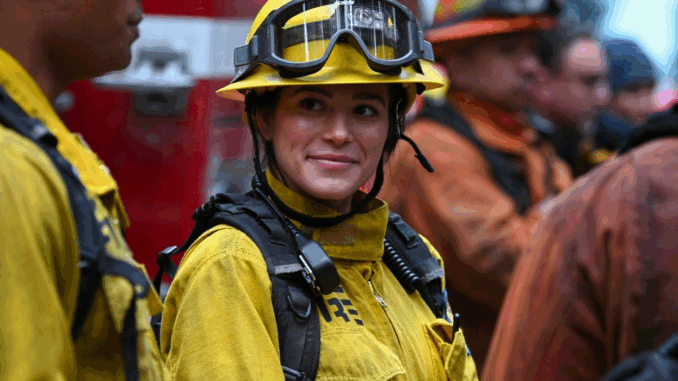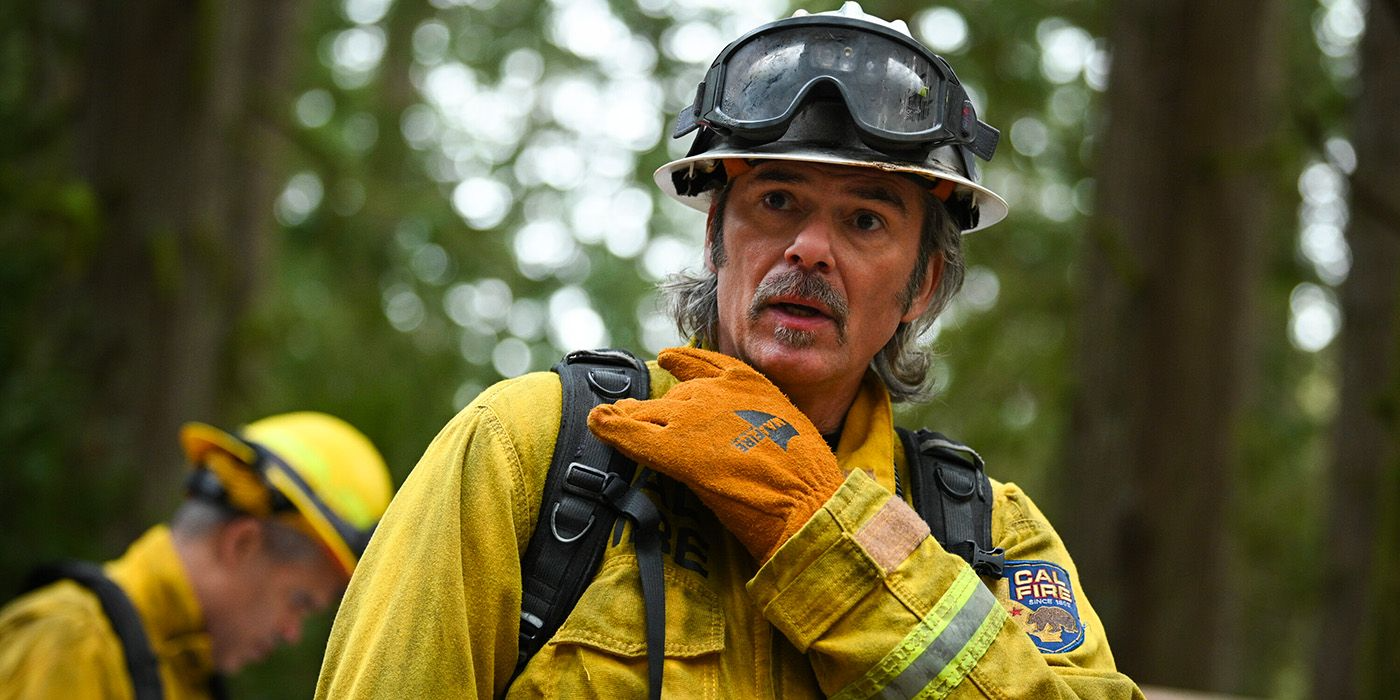
Introduction: A Hero Born in Flames
Bode Donovan is not your typical television firefighter. Introduced as a flawed, convicted felon working to redeem himself through the Cal Fire inmate firefighter program, Bode quickly becomes the emotional center of Fire Country. With his troubled past, intense determination, and complex relationships, his journey reflects one of the most compelling redemptive arcs in modern TV drama.
From the first episode to the latest season, Fire Country takes viewers through Bode’s transformation—not just as a firefighter, but as a man confronting guilt, seeking forgiveness, and redefining who he is. His arc is rich with conflict, resilience, and moral reckoning. It’s this layered evolution that turns Bode Donovan into a symbol of hope for second chances in a system often reluctant to grant them.
The Burden of a Shattered Past
Bode enters the series not as a blank slate, but as someone carrying deep emotional wounds. He’s the son of Vince and Sharon Leone—figures of high respect in the firefighting world—but instead of following in their footsteps, Bode takes a detour through addiction, bad decisions, and incarceration. His criminal past isn’t portrayed as simple rebellion; it’s rooted in trauma, self-loathing, and unresolved family issues.
This backdrop creates immediate emotional stakes. Bode isn’t just fighting fires in the forests of Northern California—he’s fighting internal flames of shame, regret, and a desperate need to prove that he’s more than the sum of his past mistakes.
A Complicated Return: Fighting Fire in His Hometown

When Bode ends up in Edgewater, his hometown, as part of a Cal Fire inmate crew, the narrative immediately tightens. This isn’t just a new post—it’s a return to the scene of his deepest failures. Here, every fire he puts out is metaphorical: his old friendships, broken family trust, and a failed romance with Gabriela Perez.
This storytelling device is brilliant because it makes Bode’s redemption deeply personal. He’s not just learning how to fight fires—he’s being forced to confront people who remember him at his worst. That means no shortcuts, no forgiveness without effort. Every interaction he has—whether it’s a cold look from his father or a skeptical comment from a teammate—becomes a test of his growth.
Redemption through Service: Fire as a Metaphor
What makes Bode’s arc compelling is how Fire Country uses firefighting as a metaphor for healing. With every call, every emergency response, and every close brush with death, Bode is given a chance to show—not just tell—his transformation.
In one memorable episode, Bode risks his life to save a child trapped in a burning cabin. His instinctual courage, paired with tactical intelligence, forces others around him to reconsider their assumptions. But the show doesn’t present this as redemption secured. It’s simply a moment on a long, winding path. Bode’s heroism is real, but it doesn’t erase his past. And that complexity is what keeps the narrative honest.
Strained Relationships and Emotional Growth
One of the most emotional pillars of Bode’s story is his relationship with his parents, Vince and Sharon Leone. Both deeply committed to their careers in Cal Fire, the Leones are torn between their duty to the public and their love for a son who has disappointed them.
Vince, in particular, is hard on Bode—often appearing emotionally distant or overtly critical. But this isn’t just tough love. It’s the behavior of a man who is still grieving the son he once believed in. Their tension provides many of the show’s rawest moments, and it’s only through consistent, visible change that Bode begins to rebuild that trust.
Sharon, meanwhile, offers a more empathetic counterbalance. Her unwavering belief in Bode gives him strength—but also pressure. The guilt he feels when letting her down or not meeting her expectations adds another emotional layer to his redemption arc.
The Gabriela Factor: Love, Regret, and Second Chances
Gabriela Perez is more than just a love interest for Bode—she represents the life he might have had if things had gone differently. Their chemistry is undeniable, but so is the emotional baggage they both carry. Gabriela struggles with her own expectations and the risk of opening her heart to someone as emotionally volatile as Bode.
Their on-again, off-again dynamic isn’t played for soap-opera drama. Instead, it reflects the messy, non-linear nature of emotional recovery. For Bode, loving Gabriela is a double-edged sword: it motivates him to be better, but also reminds him of everything he’s lost. Their evolving relationship serves as a barometer of his growth—each step forward or backward in their romance mirrors his personal progress or regression.
Leadership and Legacy: Becoming More Than a Firefighter
As Bode earns respect from his crew and superiors, we see him take on leadership roles. These moments are pivotal—not just professionally, but emotionally. For someone who once couldn’t even lead himself, guiding others in life-or-death situations signals a turning point in identity.
He starts mentoring other inmate firefighters, offering advice that’s grounded in hard-earned wisdom. In these scenes, we see Bode transition from someone seeking redemption to someone helping others find their own. That’s the true mark of growth—not just saving oneself, but creating space for others to grow, too.
The Ongoing Struggle: Why Bode’s Redemption Feels Real
Bode’s arc is powerful because it’s never complete. He doesn’t wake up one day redeemed. He backslides. He makes emotional decisions. He argues. He doubts himself. And yet, he keeps going.
The writers avoid the trap of “redemption as a destination” and instead portray it as a daily process of choice, sacrifice, and self-reflection. This realism makes Bode’s story resonate with viewers who understand that personal growth isn’t linear.
Conclusion: The Fire Within
Bode Donovan’s story is ultimately one of hope, pain, and perseverance. Through the lens of firefighting, Fire Country gives us a rich portrait of a man fighting for his soul. His evolution isn’t just a narrative arc—it’s a call to believe in the power of change, even in the unlikeliest places.
By grounding Bode’s redemption in action, relationships, and emotional vulnerability, Fire Country reminds us that no one is beyond saving—and sometimes, it’s the ones we almost give up on who rise to become the strongest among us.
